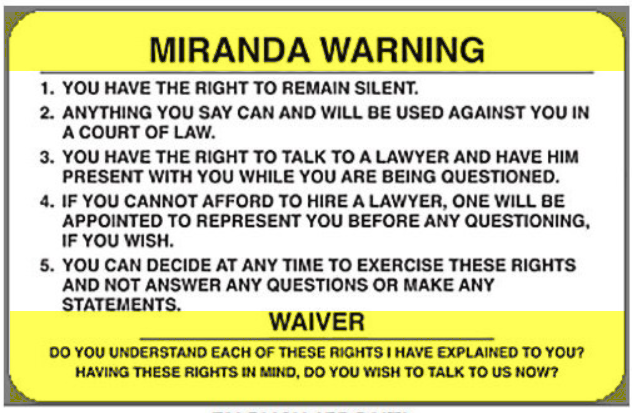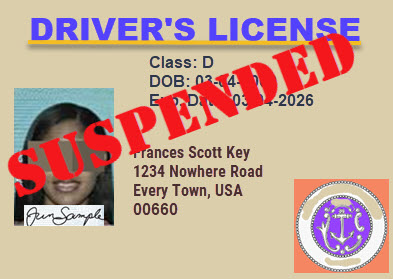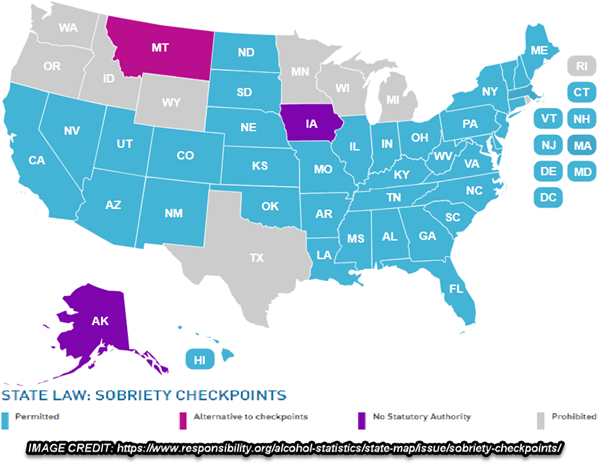Driving Under the Influence (DUI) can be a crime when someone drives a car after drinking alcohol. Truthfully, 95% or more of “arrest-able” drivers get to their destination without being detected, while others get arrested, and (depending on the State in which you were pulled over) will need a DUI attorney, OVI lawyer, DWI lawyer or OWI attorney.
It is against the law for a driver to have too much alcohol in their system and drive. Beginning in the mid-1990s, top-rated criminal defense lawyers will have taken many extra training courses to learn about the “science” behind intoxicated or drugged driving arrests, including being trained on field sobriety tests, blood test errors, flaws in breath alcohol instruments and the limited utility of portable breath testing (P.B.T.) devices.
DUIs are also called driving while intoxicated (DWI), operating under the influence (OUI), or operating while intoxicated (OWI) (plus several more acronyms as used in different states). In various states, the criminal defense attorneys who emphasize this specialized criminal legal practice may be called “OWI lawyers” (Michigan, Wisconsin, Indiana).
If charged with an OVI, only Ohio uses this acronym. Similarly, just as OVI attorneys handle an O.V.I. case in Ohio, you’ll be hiring an OUI lawyer or OUI attorneys in Massachusetts, RI, or Maine, or a lawyer for a DWUI in Wyoming, and for a DUII attorney in Oregon.
CAUTION: You are likely facing an IMMEDIATE driver license revocation or suspension. A federal agency, NHTSA, has mandated that all states impose immediate “civil” license suspensions or revocations for drivers who refuse post-arrest forensic testing.
While the most common “time to appeal” this IMMEDIATE license grab is 30 days, some states allow only 7 days to 10 days to appeal (in Alabama). Because all the attorneys on this Directory will provide a no-cost initial case assessment, CALL immediately after arrest to see how to protect your right to drive.
DUI is a serious offense and can lead to a criminal conviction as well as civil driver’s license suspension or revocation, with loss-of-driving-privileges penalties. This administrative license suspension (or revocation) will be found in the State DUI laws of every state.
So, in Georgia, the Georgia Department of Driver Services (DDS) will be the agency that DUI defense lawyers in Atlanta would be addressing. In South Carolina, the SLED (South Carolina Law Enforcement Division calls its driver’s license agency the Department of Public Safety (DPS).
By understanding the very high value of being represented by highly credentialed DUI lawyers near me once you retain such legal counsel you have then done all you can to beat the intoxicated driving case.
This article walks the arrested driver through criminal cases that can have administrative suspensions of driving privileges, along with a possible DWI-DUI conviction. These dire operating while impaired penalties will almost certainly take place for those facing criminal charges and the related loss of driving civil suspensions or revocations unless the arrested person finds a criminal law firm nearby that can prevent such consequences.
STEP 1: What Law Violation Led to Police Pulling you Over?
An officer cannot use emergency lights or a siren to stop your vehicle without a valid, legal reason. Government agents must have a good reason (legal basis) to believe that you broke some law before that cop can use “the force of law” to signal for you to stop. This is called “reasonable suspicion” for detaining a driver.
This almost NEVER is based upon a reasonable suspicion that you have been drinking alcohol or using drugs. Traffic violations like speeding, not signaling before changing lanes, running a red light, or rolling through a stop sign all “qualify” as a basis for pulling over a vehicle.
The officer may have seen a taillight bulb that was not working, or an expired, annual vehicle inspection sticker or some other “violation.” From this “legal ” reason, once he or she comes in direct contact with a motorist, evidence of impaired driving may be detected.
The stop would be permissible on this basis, and then the officer would be able to make a DUI arrest if they observe indications of intoxication while talking with and interacting with the citizen who was pulled over.
Police officers must have a reasonable suspicion that they can articulate that you have violated the law. On the other hand, if the officer lacks a reasonable basis for the stop, you likely can get any evidence from the stop suppressed from your case.
Your DWI attorney must identify, investigate, document, file a pre-trial motion to raise this issue, and (hopefully) to then argue for suppression of all the evidence collected following the illegal pullover. In other words, if you self-represent, do NOT expect your judge to do anything but be the “referee” and not your advocate.
What about if Stopped at a Sobriety Checkpoint?
Since a United States Supreme Court decision in 1990, about 38 states and the District of Columbia have laws permitting roadblocks for limited traffic safety oversight programs. SEE MAP BELOW for various states (shown in blue) that permit sobriety checkpoints).
Another permitted use of checkpoints is for checking to see that the person being screened is licensed to drive, and possibly that the motorist has mandatory liability insurance coverage in place. Some departments also used checkpoints to assure that children are buckled into proper seating, with chest harnesses and an elevated seat.
Go to this DUI checkpoint page on this website to learn more about the use of roadblocks to interdict impaired drivers. Your criminal lawyer near me should be fully up to date on how to cross examine the arresting officers and supervisory police personnel who authorized the implementation of a sobriety check point.
STEP 2: How Suspicion of Impairment by Police Converts to an Arrest for Drunk Driving
Law enforcement officers typically will attempt to use roadside field sobriety tests (and possibly a hand-held breathalyzer) in an effort to get the driver to self-incriminate. These counterfeit evaluations cannot predict whether a person is intoxicated and have such a high false positive rate that NO ONE should attempt these police tests.
Police are trained to ask drivers to allow them to “investigate” whether she or he is driving impaired. In all states, their first “evidence gathering” is by asking simple-sounding questions like, “when was your last drink tonight?” or “I smell marijuana. Am I going to find weed in your vehicle” or “step out of the car so I can check to make sure that you are safe to continue driving.”

HERE IS THE BEST WAY TO PROTECT YOURSELF
Say nothing beyond your name and address. This is all the information that the 5th Amendment to the United States Constitution requires a citizen to give. Provide any necessary documents (e.g., driver’s license) and remain silent. Watch this helpful video created by the founder of this website:
The law enforcement officer may use a battery-powered, portable breath tester to measure the amount of drinking alcohol in their body. If the test shows any level of alcohol being present, the officer may be legally authorized to arrest the driver for driving under the influence of alcohol. This online article provides some basic information that purports to “cover” each state’s laws, but the author cannot verify the accuracy of this content.
In a few states, taking the hand-held breath analyzer test at the roadside is mandated by law, assuming the officer has reasonable grounds to suspect alcohol in your system. Additional license suspension, fines or even jail time may be assessed, for not taking this evaluation in some states.
This “evidence” usually comes from him or her smelling alcohol from your breath, or you admitting to having been drinking earlier are how this typically gets “proven”. Oregon is the only state that does not allow officers to use these devices, and qualified DUI attorneys near me in that state will know their DUII laws.
Before you shake your head in a manner to indicate you are not going to participate, you may want to ask, “do state laws REQUIRE that I take this test?” Montana and North Dakota have laws imposing either a total license suspension or jail or both, but these laws are highly questionable, from a constitutional standpoint, since these are pre-arrest, incriminatory “tests.”
Refusal to Submit to Breath Testing, Blood Testing or Urine Testing
Police officers use try to utilize two types of tests to check if a driver is drunk: field sobriety tests and portable, battery-powered chemical testers at the roadside. These roadside “evaluations” are optional and voluntary and (for those who refuse) carry no type of penalties in all but a tiny number of states.
In addition, overweight or older drivers are not “average” people. Bad performance results can be influenced by various factors such as exhaustion, certain medications, or existing orthopedic or other health problems. In ALL states, no person is obligated to attempt to perform a single field sobriety test requested by an investigating officer.
All states’ implied consent laws require drivers to submit to testing, and refusing can result in license revocation or a license suspension, depending on each state’s laws. Therefore, except for two states, a driver may still be subjected to license suspension or revocation penalties even if the DUI charges are dismissed or the individual is acquitted. This is applicable if the driver refuses to undergo the post-arrest chemical test or tests involving breath, blood, urine, or a combination of these.
Moreover, declining to submit to a chemical test does not automatically shield you from being convicted of a DUI offense if there is additional evidence indicating your intoxication. In the event that you refuse the test but are still found guilty of a DUI, you may encounter more severe consequences compared to if you had cooperated. Consequently, it is generally advisable to agree to undergo a chemical test.
If you say no to a test, it doesn’t always stop the police and prosecution from proving you were drunk driving. If you refuse and still get convicted, you might face tougher punishments than if you hadn’t refused. So, it’s usually smart to agree to a chemical test.
[Article written by William C. Head, Atlanta DUI lawyer and legal DUI book co-author on Georgia DUI laws & one of three criminal attorneys near me in metro Atlanta GA who handles DUI criminal charges statewide. See Mr. Head’s list of 101 Ways to Beat a DUI]
Find The Top-Rated DUI Lawyers Near You
We have listings for the top DUI lawyers in all 50 states and the District of Columbia. Find the best DUI lawyer for you by clicking on your state here.






